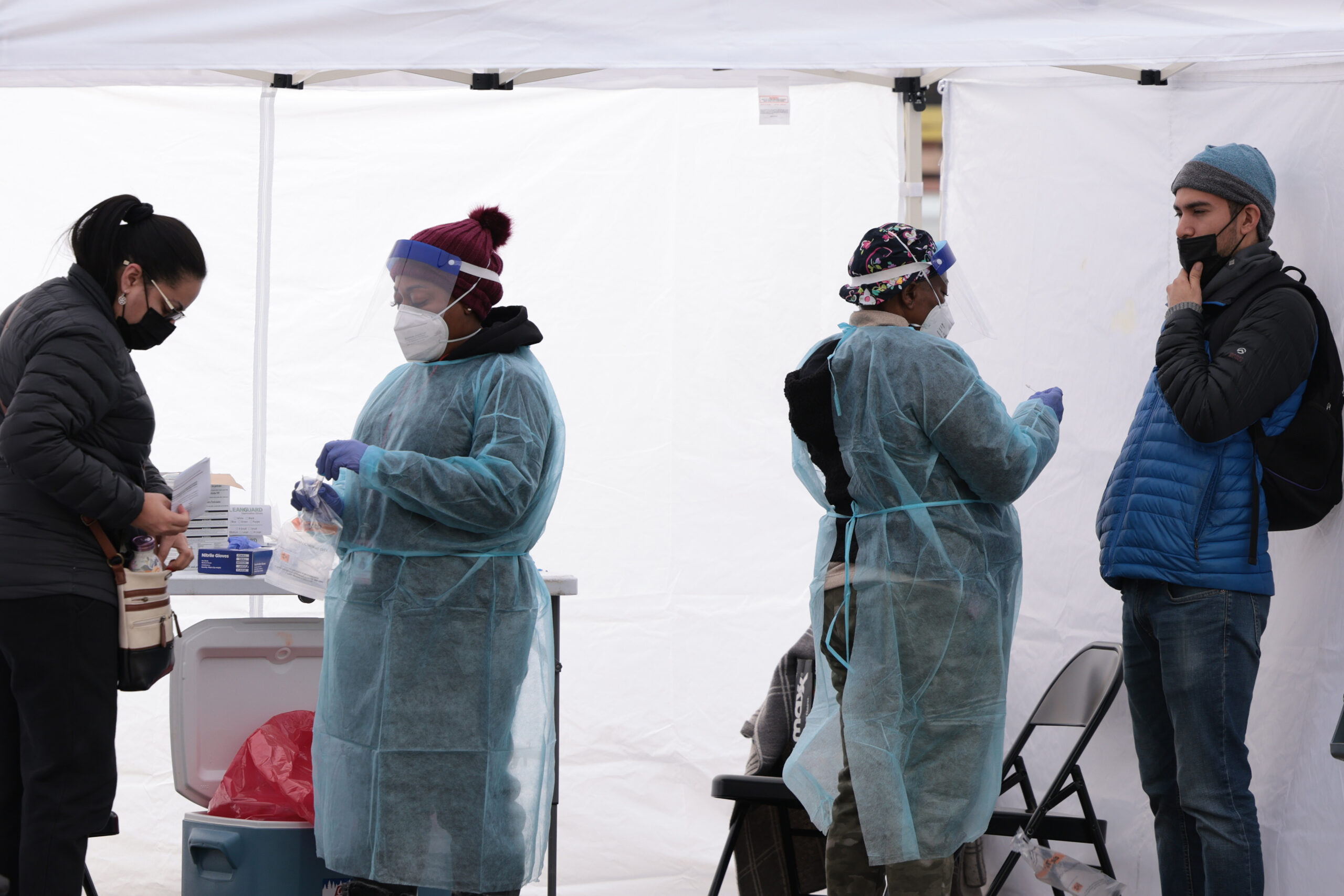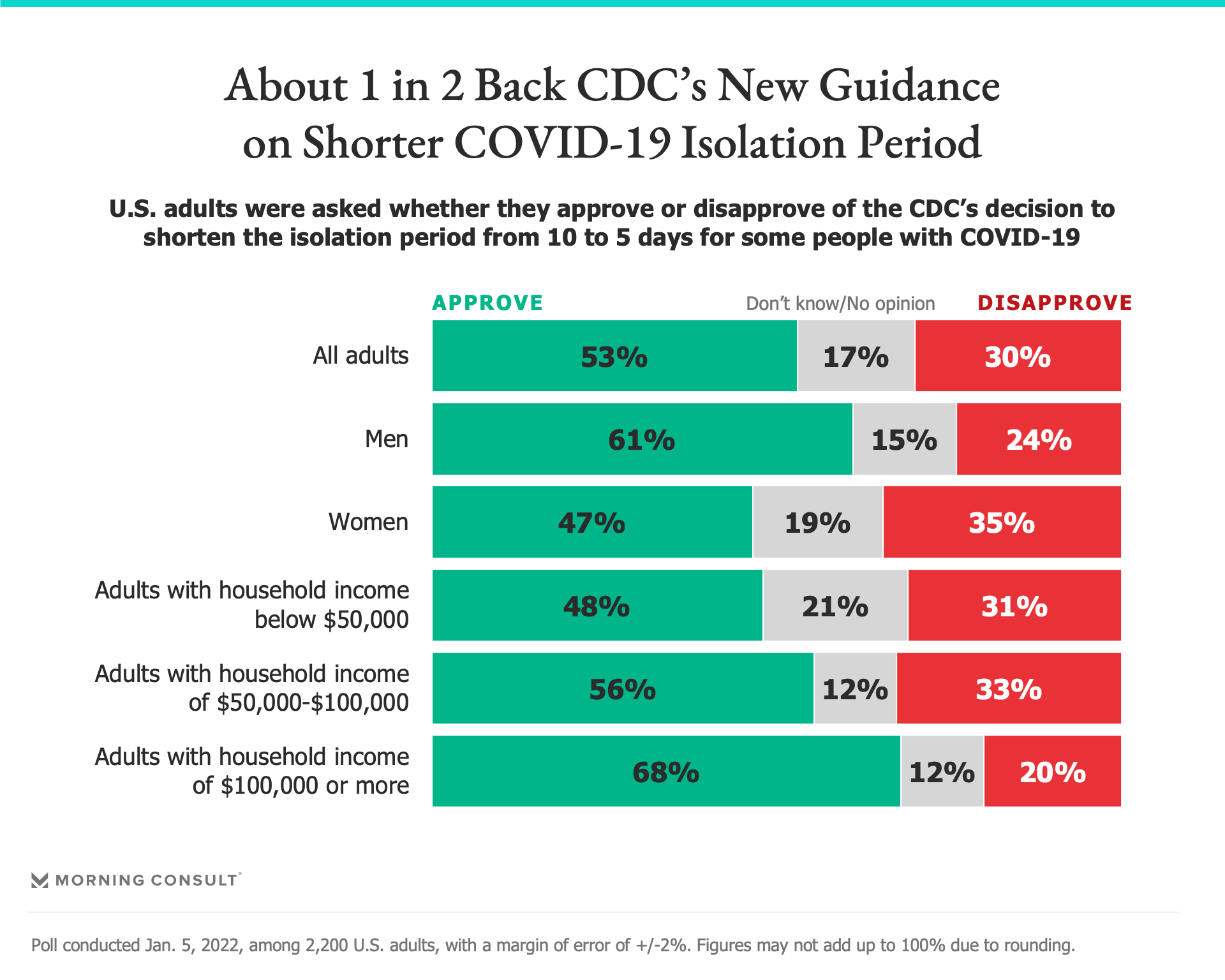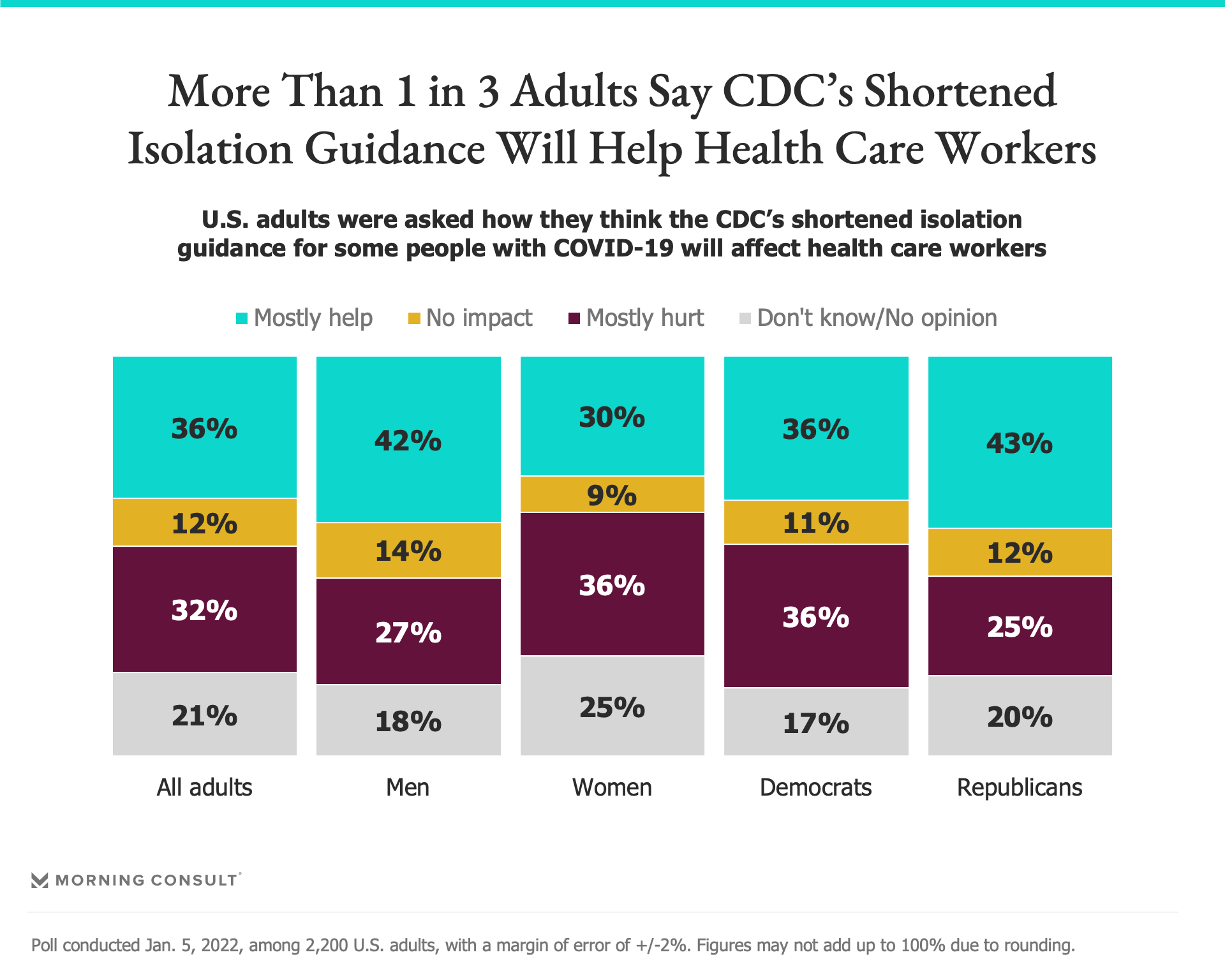Half of Adults Are in Favor of Shortened COVID-19 Isolation Period for Some Infected People
Data comes amid confusion over changing federal guidance

By Gaby Galvin
January 06, 2022 at 3:20 pm UTC
While roughly half of adults approve of the recent decision by the Centers for Disease Control and Prevention to shorten the isolation period for some people with COVID-19, the public is split on how they think the move will affect health care workers and U.S. public health, new Morning Consult polling shows.
What you need to know:
- In late December, the CDC cut the amount of time that infected people need to isolate to five days, down from 10, as long as they are asymptomatic or have improving symptoms and wear a mask when around others.
- The public mostly backs the change, with 53 percent of U.S. adults saying they approve and 30 percent saying they disapprove. There are gaps, though — women, younger adults and those in households earning less than $50,000 per year were all less likely to say they approve of the new guidance.
- In response to backlash over the shortened isolation period, the CDC updated its guidance again this week to note that if infected people would like to take a rapid COVID-19 test, they should do so around the five-day mark, but stopped short of saying a negative test should be required to resume in-person activities.
- Nearly 3 in 4 adults said they’d heard either “a lot” or “some” about the CDC’s updated isolation guidance, including 80 percent of Democrats and 72 percent of Republicans. The agency posted its latest update about testing one day before the survey ran.
What you need to know:
- The public was divided on whether it thinks the updated isolation period will help or hurt health care workers, with 36 percent saying the guidance will mostly help and 32 percent saying it will mostly hurt them. Another 12 percent said there would be no impact on health care workers, and about 1 in 5 said they didn’t know or had no opinion.
- Adults were more confident about how the new guidance will affect other types of workers and businesses: 42 percent, for example, said they thought the new isolation period would help large businesses, while only 17 percent said it would hurt them.
- Asked why they thought the CDC shortened the isolation period for some people with COVID-19, 51 percent of adults said the move was intended to boost the economy, while 25 percent said it was to protect public health and curb the spread of the virus. Men were more likely than women to say the decision was a bid to help public health, 30 percent to 20 percent.
The survey was conducted Jan. 5, 2022, among 2,200 U.S. adults, with a 2-point margin of error.
Gaby Galvin
Reporter
Gaby Galvin previously worked at Morning Consult as a reporter covering health.
We want to hear from you. Reach out to this author or your Morning Consult team with any questions or comments.Contact Us
Related content

Global Politics
As Yoon Visits White House, Public Opinion Headwinds Are Swirling at Home
April 25, 2023

U.S. Politics
The Salience of Abortion Rights, Which Helped Democrats Mightily in 2022, Has Started to Fade
March 27, 2023

Finance
Some GOP Lawmakers Want to Overhaul the Tax System. Voters Are Mostly Against Their Plan
February 15, 2023

